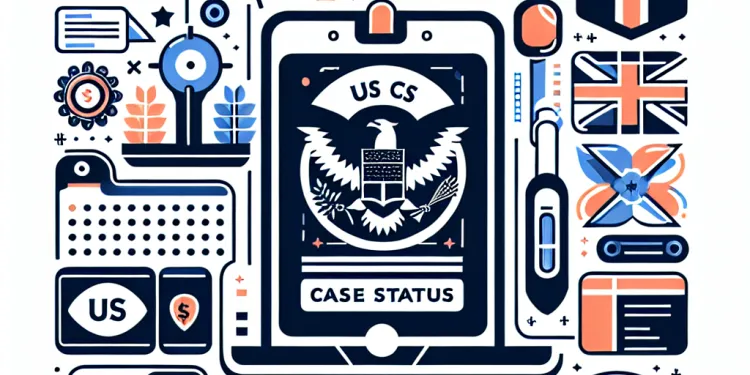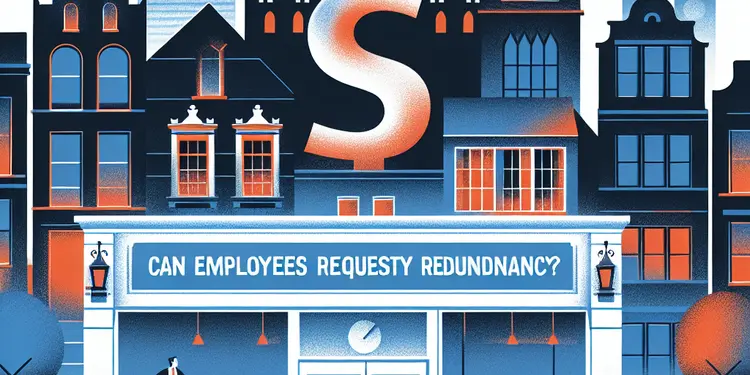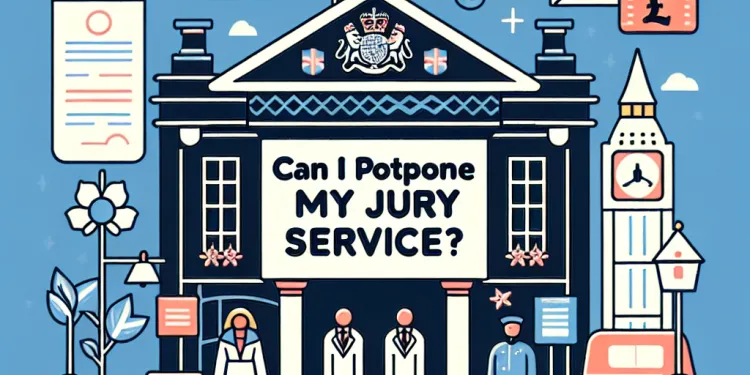
Find Help
More Items From Ergsy search
-

What should I do if I receive a Request for Evidence from USCIS?
Relevance: 100%
-

What is the USCIS Case Status Online tool?
Relevance: 58%
-

Can I visit a USCIS office to inquire about my immigration status?
Relevance: 55%
-

How can I contact USCIS if I have specific questions regarding my case?
Relevance: 54%
-

Where can I find my USCIS receipt number?
Relevance: 53%
-

Can I request corrections to my medical records?
Relevance: 37%
-

Do I need to provide financial evidence to HMRC for the arrangement?
Relevance: 37%
-

How do I request corrections to my medical records?
Relevance: 34%
-

What evidence do I need to support my claim?
Relevance: 33%
-

Can my neighbour use footage from their security camera as evidence in disputes?
Relevance: 31%
-

What should I do if my request to see my police records is denied?
Relevance: 31%
-

How should I request bereavement leave?
Relevance: 31%
-

How can I request access to my medical records?
Relevance: 31%
-

How can I request access to my police records?
Relevance: 31%
-

Can employees request voluntary redundancy?
Relevance: 30%
-

Can someone else request my police records on my behalf?
Relevance: 29%
-

Can I request footage of myself from my neighbour's CCTV?
Relevance: 29%
-

What evidence should I gather if I plan to seek legal action?
Relevance: 29%
-

Can anyone else request my medical records on my behalf?
Relevance: 28%
-

How long should it take to receive my medical records after I request them?
Relevance: 27%
-

Is there scientific evidence linking menopause to dementia?
Relevance: 27%
-

Is there any scientific evidence that links paracetamol use to autism?
Relevance: 27%
-

Why am I receiving password reset emails I didn't request?
Relevance: 26%
-

How do I request special accommodations for the DVSA Theory Test?
Relevance: 26%
-

What evidence can be used in a boundary dispute?
Relevance: 24%
-

How do I record evidence for a mis-sold car finance claim?
Relevance: 23%
-

Why am I receiving password change requests that I did not initiate?
Relevance: 23%
-

How can I get information on my immigrations status?
Relevance: 21%
-

How can I check my immigration status online?
Relevance: 19%
-

Do I need to provide financial evidence to HMRC for the arrangement?
Relevance: 19%
-

What should I do if my claim is rejected?
Relevance: 17%
-

How do I prepare for a tribunal hearing?
Relevance: 17%
-

What steps can a party take to expedite a court date?
Relevance: 17%
-

Can my religion exempt me from jury service?
Relevance: 16%
-

What if I disagree with a Universal Credit decision?
Relevance: 16%
-

How can I ensure my police records are accurate?
Relevance: 16%
-

Can I postpone my jury service?
Relevance: 15%
-

What should I do if my employer denies my bereavement leave request unfairly?
Relevance: 15%
-

What should I do if I cannot attend the tribunal on the scheduled date?
Relevance: 15%
-

What should I do if I am denied access to my medical records?
Relevance: 14%
Understanding a Request for Evidence
A Request for Evidence (RFE) from the United States Citizenship and Immigration Services (USCIS) indicates that additional information is required to process your application. Receiving an RFE does not mean your application will be denied; rather, it is an opportunity to provide further evidence or documentation in support of your case. It's important to respond promptly and thoroughly to an RFE to ensure the continued processing of your application.
Review the RFE Carefully
The first step after receiving an RFE is to read it carefully and thoroughly. The RFE will specify what evidence is needed and the deadline for submission. Ensure you understand what documents or information are required. Typically, you will have 30 to 90 days to respond. Missing the deadline can lead to a denial of your application, so it's crucial to act promptly.
Gather the Required Evidence
Based on the specific requests detailed in the RFE, gather the necessary documents. This may include financial records, employment verification, educational certificates, or any other relevant documentation. Make sure all documents are complete, legible, and translated into English if originally in another language. Double-check to ensure that you have not missed any requested items.
Consider Legal Assistance
If you find the RFE requirements complex or challenging to fulfill, consider seeking assistance from a qualified immigration attorney. An attorney can help ensure that your response is complete and addresses all the concerns raised by USCIS. This professional guidance can be particularly useful for navigating complex aspects of immigration law and improving your chances of success.
Prepare a Response Package
Prepare a well-organized response package, including a cover letter that summarizes your case and details the evidence provided. Each piece of evidence should be clearly labeled and cross-referenced with the information requested in the RFE. Maintain copies of everything you submit for your personal records. Ensure the response package is clear, concise, and directly addresses each item mentioned in the RFE.
Submit Before the Deadline
It is crucial to submit your complete response before the deadline specified in the RFE. Late submissions may not be accepted, and failure to respond can result in application denial. Use a reliable delivery method, such as courier or certified mail, and retain proof of submission. This documentation can be useful in case any issues arise regarding receipt of your response.
Follow Up with USCIS
After submitting your response, monitor the status of your application through the USCIS website or by contacting their customer service. Be patient, as processing times can vary. Receiving an RFE is a common part of the immigration process, and responding effectively can lead to a successful outcome.
Frequently Asked Questions
What is a Request for Evidence (RFE) from USCIS?
A Request for Evidence (RFE) is a request from USCIS for additional information or documents to make a decision on your application or petition.
Why did I receive an RFE?
You received an RFE because USCIS needs more information or evidence to make a decision on your case. This could be due to missing documents, insufficient evidence, or the need to clarify some information.
How should I respond to an RFE?
Carefully review the RFE notice and provide the requested evidence as instructed. Submit the response before the deadline and ensure it is complete and organized.
What should I do if I don't understand the RFE?
If you're unsure about the RFE, consider consulting with an immigration attorney or accredited representative for guidance.
How much time do I have to respond to an RFE?
The RFE notice will specify the deadline. Typically, you must respond within 30 to 90 days, but check your notice for the exact time frame.
What happens if I don't respond to an RFE by the deadline?
If you don't respond by the deadline, USCIS may deny your application or petition based on the evidence they currently have.
Can I request an extension on the RFE response deadline?
Generally, no extensions are granted. You must respond within the time frame specified in the RFE.
Should I respond to all the items listed in the RFE?
Yes, you should respond to each item requested in the RFE comprehensively to ensure USCIS has all the necessary information.
Can I submit additional information that was not requested in the RFE?
It's best to provide only the evidence requested. If you have other relevant information, you may include it, but ensure it relates to the RFE points.
How should I organize my RFE response?
Include a cover letter referencing your case number and list of included evidence, and organize the documents clearly with labeled tabs or an index.
Can I respond to an RFE online?
Some RFEs may allow for electronic submission, depending on your case type. Check your RFE notice for specific instructions.
What address should I send my RFE response to?
The mailing address will be listed in your RFE notice. Ensure you send it to the correct address to avoid processing delays.
Should I send originals or copies of documents in my RFE response?
Submit copies of documents unless the RFE specifically requests originals. Keep originals for your records.
Will responding to an RFE guarantee approval of my case?
Responding ensures USCIS has the necessary information, but it does not guarantee approval; the decision depends on the provided evidence meeting USCIS requirements.
What if I need help gathering the documents for my RFE?
You may seek assistance from an immigration attorney or a representative who can help you gather and prepare the necessary documents.
How will I know if USCIS received my RFE response?
You may receive a confirmation from USCIS once they have processed your response, and you can check your case status online.
Can an RFE affect the processing time of my case?
Yes, responding to an RFE can extend the processing time as USCIS will need to review the additional information you have provided.
What should I do if I lose the RFE notice?
Contact USCIS immediately for guidance on how to proceed if you lose the RFE notice.
Are there any fees associated with responding to an RFE?
There are no additional fees to respond to an RFE, but any new evidence you provide, like medical exams, may have costs associated.
Should I keep a copy of my RFE response?
Yes, always keep copies of everything you send to USCIS, including your RFE response and any accompanying documents.
Useful Links
This website offers general information and is not a substitute for professional advice.
Always seek guidance from qualified professionals.
If you have any medical concerns or need urgent help, contact a healthcare professional or emergency services immediately.
- Ergsy carfully checks the information in the videos we provide here.
- Videos shown by Youtube after a video has completed, have NOT been reviewed by ERGSY.
- To view, click the arrow in centre of video.
- Most of the videos you find here will have subtitles and/or closed captions available.
- You may need to turn these on, and choose your preferred language.
- Go to the video you'd like to watch.
- If closed captions (CC) are available, settings will be visible on the bottom right of the video player.
- To turn on Captions, click settings .
- To turn off Captions, click settings again.
More Items From Ergsy search
-

What should I do if I receive a Request for Evidence from USCIS?
Relevance: 100%
-

What is the USCIS Case Status Online tool?
Relevance: 58%
-

Can I visit a USCIS office to inquire about my immigration status?
Relevance: 55%
-

How can I contact USCIS if I have specific questions regarding my case?
Relevance: 54%
-

Where can I find my USCIS receipt number?
Relevance: 53%
-

Can I request corrections to my medical records?
Relevance: 37%
-

Do I need to provide financial evidence to HMRC for the arrangement?
Relevance: 37%
-

How do I request corrections to my medical records?
Relevance: 34%
-

What evidence do I need to support my claim?
Relevance: 33%
-

Can my neighbour use footage from their security camera as evidence in disputes?
Relevance: 31%
-

What should I do if my request to see my police records is denied?
Relevance: 31%
-

How should I request bereavement leave?
Relevance: 31%
-

How can I request access to my medical records?
Relevance: 31%
-

How can I request access to my police records?
Relevance: 31%
-

Can employees request voluntary redundancy?
Relevance: 30%
-

Can someone else request my police records on my behalf?
Relevance: 29%
-

Can I request footage of myself from my neighbour's CCTV?
Relevance: 29%
-

What evidence should I gather if I plan to seek legal action?
Relevance: 29%
-

Can anyone else request my medical records on my behalf?
Relevance: 28%
-

How long should it take to receive my medical records after I request them?
Relevance: 27%
-

Is there scientific evidence linking menopause to dementia?
Relevance: 27%
-

Is there any scientific evidence that links paracetamol use to autism?
Relevance: 27%
-

Why am I receiving password reset emails I didn't request?
Relevance: 26%
-

How do I request special accommodations for the DVSA Theory Test?
Relevance: 26%
-

What evidence can be used in a boundary dispute?
Relevance: 24%
-

How do I record evidence for a mis-sold car finance claim?
Relevance: 23%
-

Why am I receiving password change requests that I did not initiate?
Relevance: 23%
-

How can I get information on my immigrations status?
Relevance: 21%
-

How can I check my immigration status online?
Relevance: 19%
-

Do I need to provide financial evidence to HMRC for the arrangement?
Relevance: 19%
-

What should I do if my claim is rejected?
Relevance: 17%
-

How do I prepare for a tribunal hearing?
Relevance: 17%
-

What steps can a party take to expedite a court date?
Relevance: 17%
-

Can my religion exempt me from jury service?
Relevance: 16%
-

What if I disagree with a Universal Credit decision?
Relevance: 16%
-

How can I ensure my police records are accurate?
Relevance: 16%
-

Can I postpone my jury service?
Relevance: 15%
-

What should I do if my employer denies my bereavement leave request unfairly?
Relevance: 15%
-

What should I do if I cannot attend the tribunal on the scheduled date?
Relevance: 15%
-

What should I do if I am denied access to my medical records?
Relevance: 14%


